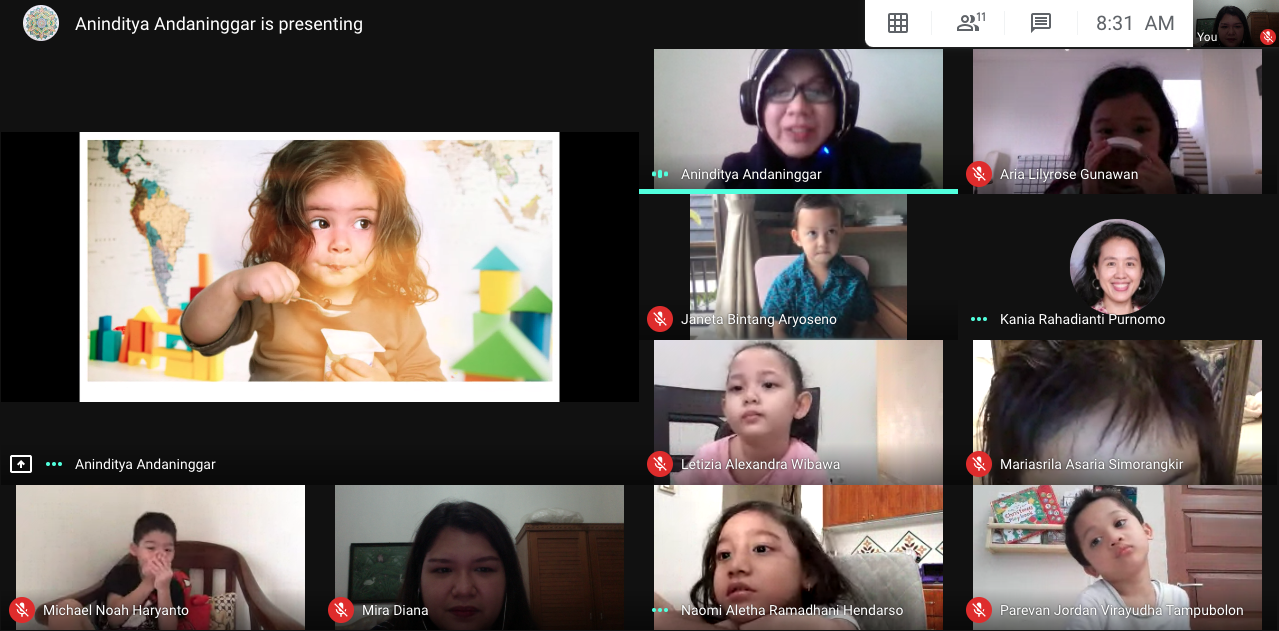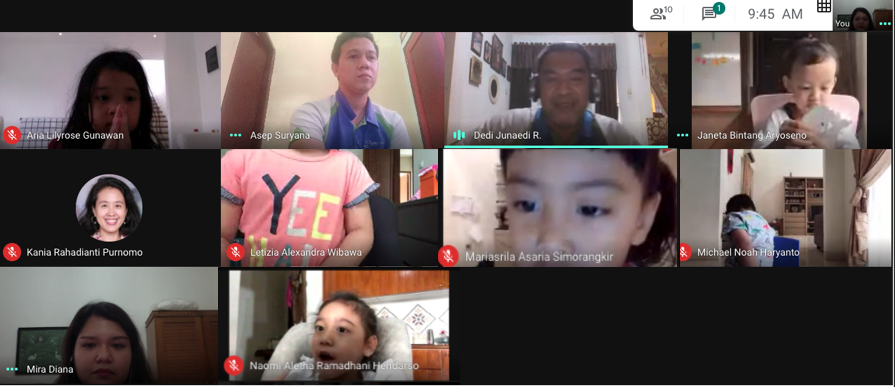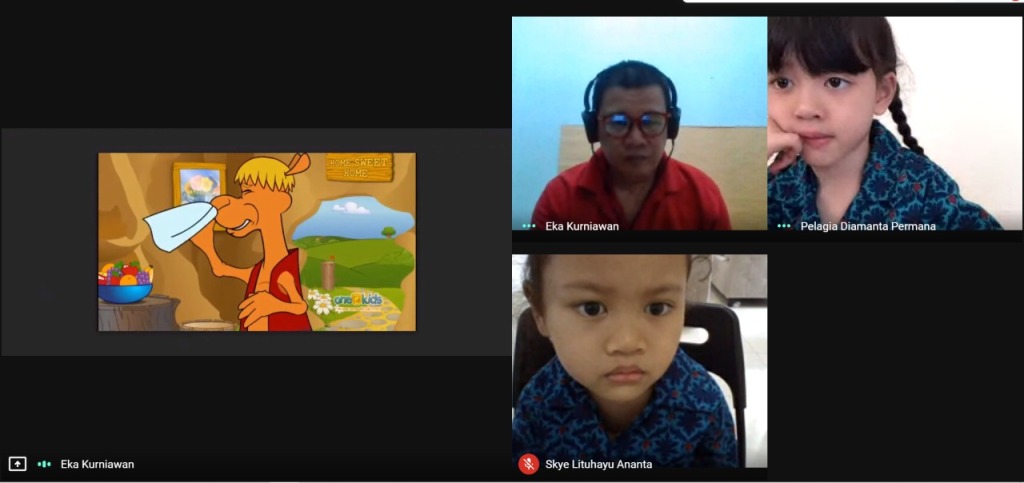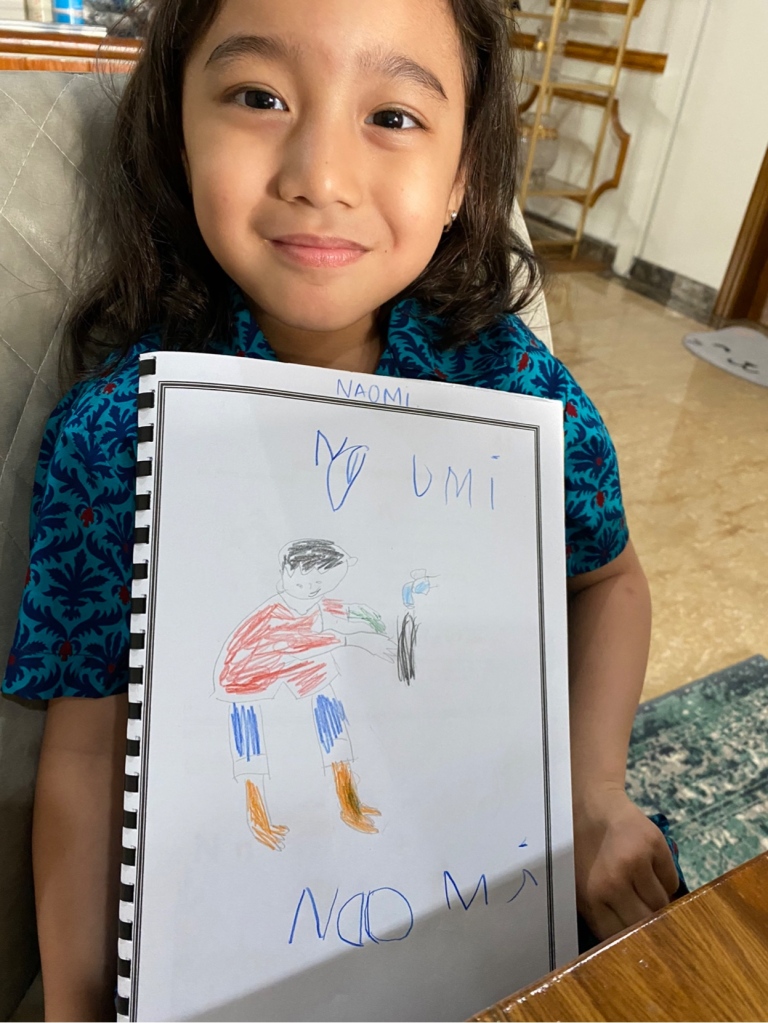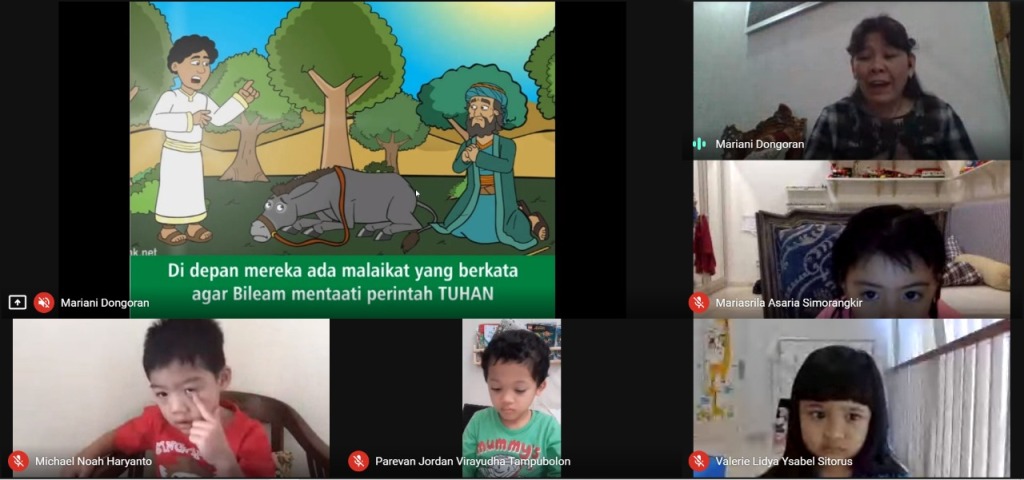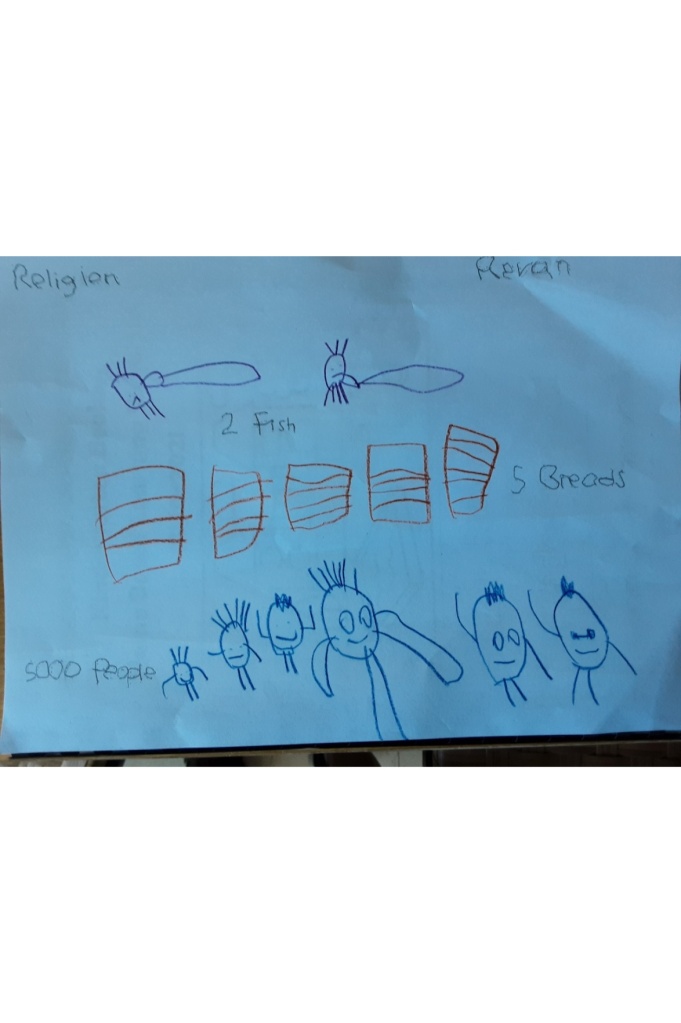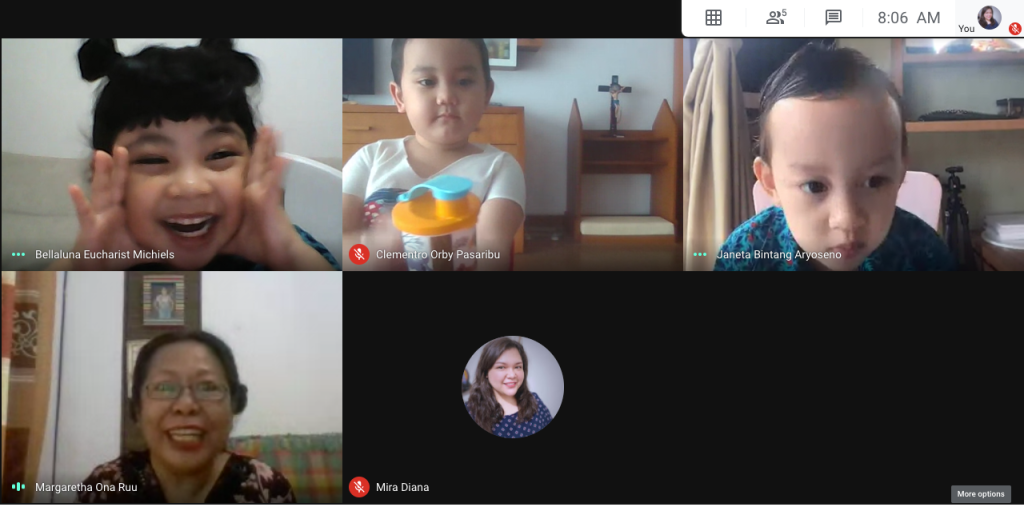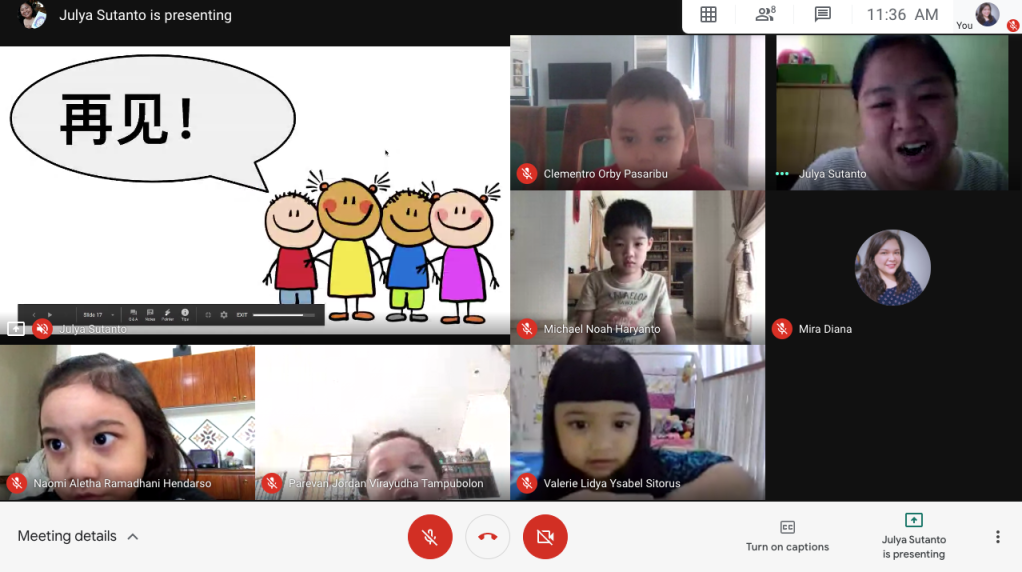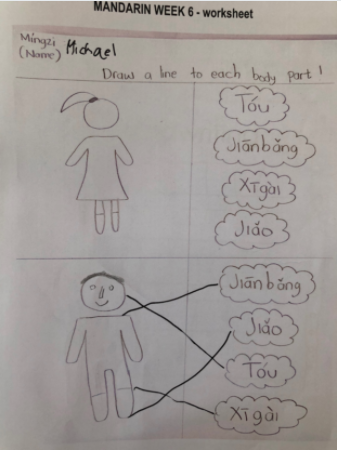Month: September 2020
Teaching the IB Learner Profile through Celebrations
Introducing and teaching the IB learner profile to early years, particularly to 3 to 4 year-olds, can be challenging. I use different techniques, strategies, and learning materials to make the IB learner profile easy to digest for this age level. One of the strategies that I have tried and worked well is getting the students involved in various celebrations. Last September 15, the students celebrated the “International Dot Day”. Last September 21, we commemorated “International Peace Day”.
The International Dot Day in Early Years 1 Class
We began the International Dot Day celebration by reading “The Dot” story written by Peter H. Reynolds.

While listening to the story, we pretended to be Vashti, the girl character in the book. I encouraged the students to act out the story to make it more enjoyable and meaningful for them. We made a single dot on our own drawing books and signed the papers. Then, using our creative thinking skills, we drew more dots using markers around that single dot. Amazingly, each of us managed to create different artworks. The students were so excited making the artworks and created more pictures using lines and dots.

Once we finished doing the visual arts activity, we also played the “Musical Dot” game. Since we started our home learning programme due to COVID-19 pandemic, my students were always accompanied by their caregivers. As their siblings came to visit EY1 online class too, I also allowed them to play the game. The purposes of this game are to encourage the students to move away from their screen, practice their fine motor skills, work in a team, and do physical exercises. The rules of the game were simple. All participants needed to cut and prepare circles in different sizes and colors. Then, we all needed to scatter our circles around the room. When the music played, we danced together. As the music stopped, we had to collect as many circles as we could. At the end of the game, we had to paste the circles that we found on a piece of paper and created a team artwork.

Through these activities, the students showed some of the IB learner profile attributes, such as being a thinker, a risk-taker and a communicator. The thinker attribute was evident when the students used their creative thinking skills in making artworks. The risk-taker profile was shown when the students dared to take their own initiatives to make different artworks independently. The communicator profile was seen in the way the students listened to the story, followed the instructions, explained their artworks, and expressed their thoughts to other people during the game preparation and while playing the game.
The International Peace Day in Early Years 1
“Peace” is a big word for 3 to 4 year-old students. To help them understand the meaning of peace, I asked my students to watch the following videos:
After watching those videos, we had a discussion to describe what peace is all about. The students could sort out which situations would bring peace and which would not. One student showed that hugging her daddy will bring peace. The other student said, “No hitting and biting friends”. Then, we all made different peace signs and showed them in front of the camera. We appreciated all artworks made by everyone. Nobody gave negative feedback. In fact, all were curious about what the others made. Then, the students remembered parts of the song and sang, “Everybody is different. That’s okay. Everybody is different. Hooray!”

During this celebration, my students did show the other IB learner profile attributes such as being caring, reflective, and open-minded.
I am grateful to my co-teacher who continues to share her ideas, make events more fun, and assist in monitoring and documenting student learning.
I look forward to noticing other IB learner profile attributes demonstrated by students and other members of the school community.
By: Geertruida Maya
Early Years Class Teacher
BINUS SCHOOL Simprug
gmaya@binus.edu
Incredible Specialists!
Since Week 6, Kindergarten students have welcomed Ibu Ninggar into our classroom. Ibu Ninggar is our School Counselor who supports us in learning about who we are. Students talked about how they grow by looking at the progression of pictures from baby to child. During Ibu Ninggar’s Personal Development Programme, students learned about the potential people have at different stages in their life (from a newborn until four years old). Students compared a baby’s abilities to their current skills. To enhance students’ understanding, Ibu Ninggar assigned activities in our booklet. One of the activities focuses on exploring ways to keep safe when interacting with other people. Students will soon have the opportunity to talk about the different comfort levels concerning physical action to other people or themselves.
Kindergarten students have been joining sessions with our specialist teachers who have lessons integrated with our inquiry unit. The Physical Education session helps students develop their strength through balance and flexibility exercises. Students were risk-takers when they followed the teacher’s directions. Thank you, Pak Dedi, Pak Alwan, Pak Asep, and Ibu Harna for making exercise fun, enjoyable, and safe!
Our school encourages students to respect people of different religious beliefs and to develop a deeper understanding of their religion through class sessions. The photos show how some Kindergarten students learned about personal hygiene in Islam religion sessions, while others learned about respect and Bible stories in the Christian religion session. Catholic students had the opportunity to learn about kindness. A big thank you to our religion teachers Pak Tisno, Ibu Etha, Ibu Mariani, and Pak Eka for teaching us every Monday.
As part of the third language choice at school, some of the Kindergarten students take Mandarin class. In one of the sessions, students learned about the names of body parts in Mandarin and some necessary skills, such as greeting people in Mandarin and counting from 1 to 10. Xie Xie, Lao Tse Julya, for teaching our little ones this beautiful language.
Online teaching in the Early Years
I am currently working as an Early Years class teacher at BINUS SCHOOL Simprug, a co-educational school in Jakarta catering to students from Early Years 1 to Grade 12. The school is recognized as an International Baccalaureate (IB) “World School” offering Primary Years Programme, Middle Years Programme, and Diploma Programme.
Early Years is part of IB PYP. At BINUS SCHOOL Simprug, we have three Early Years levels, namely Early Years 1, Early Years 2, and Early Years 3. The curriculum is guided by an inquiry-led transdisciplinary framework where students can learn, develop, and strengthen their understanding, knowledge, and skills across and beyond the six subject areas which include language, mathematics, science, social studies, arts, and personal, social, and physical education.
For this 2020 – 2021 academic year, I teach Early Years 2 students, aged between four and five. There are two classes in Early Years 2. I am blessed to have 11 students enrolled in my class composed of one Korean and 10 Indonesian students. I am also assisted by an Indonesian co-teacher who helps me in the preparation and planning of activities, lesson plans, and instructional materials. We collaborate to make our sessions more engaging, productive, and fun-filled for our students especially during this online teaching.
Online class schedule in Early Years 2 starts from 8:30 in the morning and ends at 12:30 in the afternoon. Each session is 30 minutes wherein 20 minutes are for the lesson proper and the remaining 10 minutes are for students’ support and transition time. Thirty minutes is allocated each for snacks and lunch as break time periods. During the break, students may leave the class and take their snacks or they may stay in the meeting room while I play instrumental music. The rest of the sessions are for homeroom classes and specialist subjects. As a homeroom teacher, I teach all subject areas except for music, religion, and language classes such as Chinese and Indonesian subjects.
I start the class with circle time. During circle time, we do our morning prayer, say our greetings with each other, take attendance, fill up the calendar, sing some songs, share our feelings for the day, and dance to the beat through music and videos. These are parts of our class routines which I introduced to my students during the first few weeks of the start of classes. We also came up with some essential agreements in our class such as the regular wearing of school uniform, raising of hands during class discussions, asking permission when going to the toilet, and eating during break time only. During class time, my students are accompanied by adults usually with their mothers and some by the guardians and nannies. To instill in them the value of independence, we have been practicing how to turn on the microphone and camera in their gadgets by themselves.
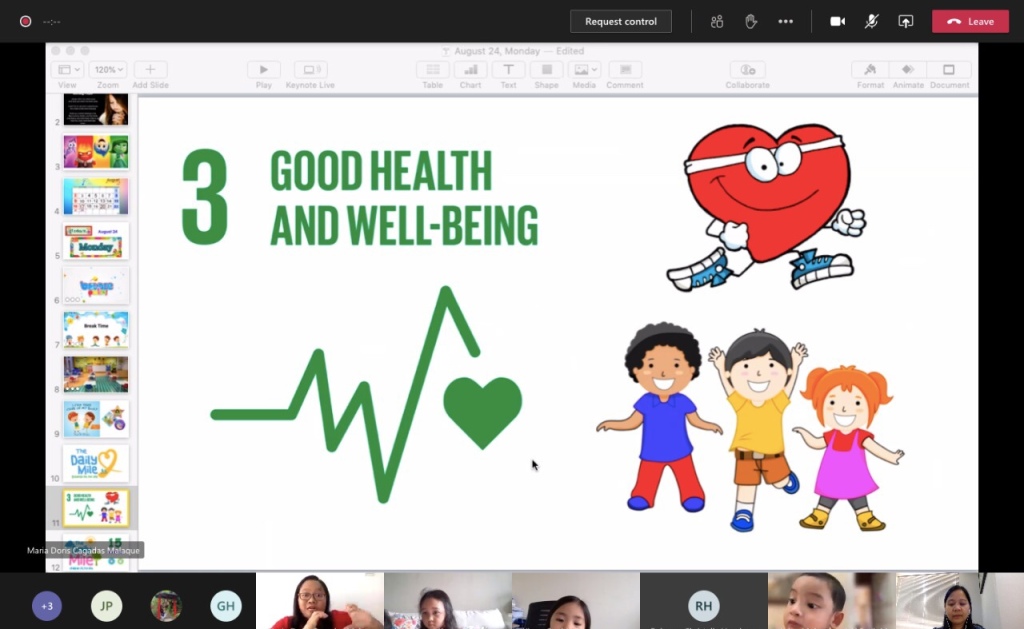
In Early Years 2, we have four transdisciplinary themes – Who we are (Family), How we express ourselves (Feelings), How the world works (Five Senses), and Sharing the planet (Plants). For this term, (July-September), our Unit of Inquiry is Who we are focusing on the members of families, types of families, roles and responsibilities of each family member, and why we need a family. When I introduced to the class the unit of inquiry on family, I asked my students to draw their prior knowledge of what family means to them. Knowing the prior knowledge of my students about family will help me determine how to develop my lessons. It is then my responsibility to strengthen their conceptual understanding about family and at the same develop and introduce new concepts to them that will add new knowledge. Some of the learning engagements that we did about family were the following: inviting parent resource speakers, making of stick puppets of the family members living with them, show and tell activity of their family pictures, making of family picture frame, and drawing activities about their small and big families.

Every week, we always have storytelling, a play time session, arts and crafts, penmanship activities, and physical fitness session. My students love and enjoy doing all the music and movement activities. We also learn phonics, numbers, measurement, patterns, and rote counting. I give them weekly homework through a Reading Log Activity. Every Wednesday, my students receive a storybook in a movie version that I make and which their parents read to them. This is followed by the answering of the reading log notebook. For this term, my students are learning the reading skill on creating mental images wherein they draw what they imagine based from the story.
To have constant communication with parents, I send every Friday a weekly note in which they see photos of their children during the online classes, the announcements and reminders for the upcoming weeks, and the list of activities that we did for the week and for the upcoming week. In my class, I provide ongoing and formative assessments with rubrics. The students are also given the chance to do self-assessment and self-reflection. Ongoing assessments usually take place during the homeroom sessions and sometimes, I call them individually while the rest of my students are with my co-teacher. I also make sure that my students are given the chance to have their choice, voice, and ownership in doing the activities in class.
Online teaching in the Early Years is indeed both exciting and challenging experiences for me as a teacher. It is exciting because I get the chance to explore different platforms in doing the online classes such as MS Teams and Zoom. I am amazed at how each platform provides interactive ways to communicate with my students, parents, and teachers. I have learned how to do screen share of my documents, PowerPoint presentations, music, and videos. In school, we are using the licensed MS Teams for our regular classes, parents’ conferences, and teachers’ meetings. We only used the licensed Zoom application for school assemblies.
On the other hand, it is challenging because I need to prepare PowerPoint presentations everyday with engaging activities that will sustain the attention span and focus of my students during the whole learning process. The preparation is actually a tedious task. Another challenge is to incorporate the teaching strategies I used in the normal classroom setting such as inquiry-based, play-based, and hands-on learning to my online classes. I always believe that students learn best during their social interactions inside the classroom with their friends and classmates.
With the full support of everyone – school, teachers, parents, and students, I was able to manage and overcome these challenges. Yes, I still feel tired everyday, but I also enjoy teaching with my students as teaching has always been my passion. I am looking forward to that day wherein I can have face to face teaching again with my students. I think this is also what everyone is hoping for. I guess, with this new normal, face to face will still be subjected to physical distancing with the observance of the minimum health standards, and that will take time. So for now, we just have to go along with the change. As what Alan Watts said and I quote, “The only way to make sense out of change is to plunge into it, move with it, and join the dance.” With a positive outlook and optimism, I know that beautiful things will come out amidst this pandemic. Someday, when we look back at this time, we survived and we made it because we work as one.
By: Maria Doris C. Malaque
Early Years Class Teacher
BINUS SCHOOL Simprug
mmalaque@binus.edu
Getting to Know Each Other!
Welcome to Kindergarten 2020-2021! Although it is sad we aren’t able to go back to our typical physical school routine at the moment, we are so happy to see everyone’s smiling face on Google Meet every day. Our first unit of inquiry, Who We Are, is about family and ourselves. During this unit, students have been learning how to develop new routines, are identifying members of their home community, are learning about new people in their school community, and are forming new relationships with friends.
This term we had a special event, Independence Day. We celebrated our first Independence Day together by wearing red and white clothes in a joint Google Meet class. Students had two different activities about Indonesia. In the first session, students were shown various Indonesian traditional snacks. We then drew the snacks and ate them together to build social and communication skills. In the second session, we watched a video of an Indonesia flag raising ceremony and sang Indonesia Raya together. Even though we did all the activities virtually, students showed engagement through verbal and written response while participating in all the activities. We had such a fun, patriotic time demonstrating international-mindedness!
Love,
Kindergarten Teachers

